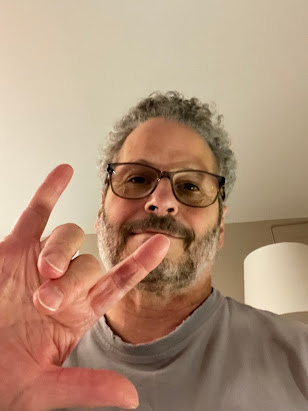Paul Hostovsky makes his living in Boston as a sign language interpreter. His poems have won a Pushcart Prize, two Best of the Net Awards, the FutureCycle Poetry Book Prize, The Comstock Review’s Muriel Craft Bailey Award, and have been featured on Poetry Daily, Verse Daily, and The Writer’s Almanac. His newest book of poems, Pitching for the Apostates, is forthcoming in 2023 from Kelsay Books. Website: paulhostovsky.com
Colander
Yesterday I couldn’t remember the word colander,
a word I love and have always thought of
as one of those words that’s lovelier than the thing
itself. I was holding the thing itself in my hands,
the steaming angel hair pasta draining in the sink,
when I looked at the colander and thought to myself,
“What is the name of this thing?” And maybe it’s age,
and maybe it’s the beginning of something more
pernicious, but in the end we have to let go
of everything. We have to let go of every single
thing and its name. And because I have always loved
the names of things more than the things themselves
I stood at the sink missing colander, loving it more
than the colander, more than the angel hair pasta
that I chewed abstractedly over dinner, trying to locate
colander in my mouth, where it used to live
until it disappeared–its three slippery syllables like
three spaghetti noodles in a pot of fungible spaghetti noodles.
And today, when I finally remembered it–found it right
where I’d left it–I whispered it to myself over and over
like a lover whispering the name of a lost beloved
who returns, but is untrue, and will disappear again.
Landmark
My mother’s new house
was the third house on the left,
the one with the big rock in the front yard–
you couldn’t miss it. This was
on the third rock from the sun, the one
with billions of people on it–you couldn’t
leave it, not even if you died
six months after retiring and moving to Boston
to be closer to your grandchildren. It was
a nondescript rock, a boulder really,
that the builder probably decided on a lark
to leave there: a sort of lawn ornament,
a sort of landmark. Sandstone or limestone
or maybe shale. She’ll have a hard time
selling it with that rock in front, said my wife.
She won’t sell it, I said. She’s not leaving.
She died six months later, suddenly, unexpectedly,
a bacterial infection that overwhelmed her overnight.
We never found out how she got it. There are
more bacteria living on your skin
than people living on the third rock from the sun.
My son liked to climb it when we visited.
He was only 4. His sister was 2. They don’t
remember the rock and they don’t remember
my mother. The buyer said he didn’t like the rock
but it wasn’t a dealbreaker. The two of us stood
in the front yard negotiating. I told him
it was a great landmark–you couldn’t miss it.
I told him my kids liked to climb it. I told him
my mother lived here only six months–she hadn’t even
hung her pictures yet. Suddenly, unexpectedly,
I started to weep. He put his hand on my shoulder
to console me, this stranger, this buyer, a tender
gesture that only made it worse, and I began to sob
uncontrollably. I hid my face in my hands
and turned away from him, and faced the rock.








